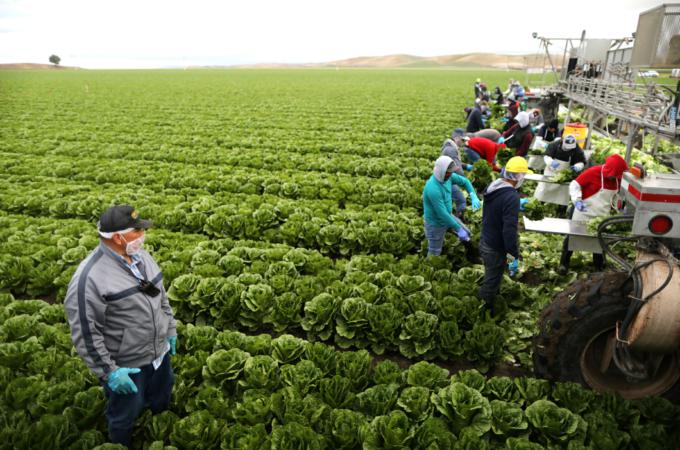Gratitude to all farmworkers without exceptions
We all like our fresh salads, vegetables and fruits. If we eat meat, we want the best quality. However, these do not grow or raise themselves. They come to us thanks to the hard and dedicated work of farm laborers.
In the United States of America there are about 3 million farmworkers. The vast majority, about 80%, are Hispanic. Two-thirds work for hire.
Mindful of the strong Catholic roots among Hispanics, more than half of farmworkers in the U.S. could be Roman Catholic. We need better statistics about this. Nearly half of all farmworkers in our country live in irregular migratory status, most in this group for ten years or longer.
Farm laborers, particularly those hired seasonally, are likely to live in poverty. On average, a farmworker in the U.S. makes $10.60 per hour -- or $22,048 yearly, assuming steady employment.
Besides the arduous physical work, there are significant risks associated with laboring in the agricultural world: bodily injuries, exposure to pesticides and other chemicals, poor access to health care, low educational opportunities, etc.
Without a doubt, those involved in agricultural work perform a labor of love and sacrifice that deserves more appreciation.
When ordering our salads or preparing meals for our children, perhaps our last concern is the ethnicity, immigration status or religious affiliation of the farmworkers who literally make food possible for us every day.
Yet, knowing this is important, we cannot ignore that farmworkers are flesh-and-blood women and men, with families, with dreams, who with their labor are committed to making this a strong society.
It is ironic that political and legal decisions that sometimes have negative effects upon millions of farmworkers and their families are made by leaders who later sit down to celebrate their feats with friends and relatives eating what those same farmworkers cultivated or raised.
That includes policies that lead to the reduction of social benefits for those at the very bottom of our social scale or massive deportations of undocumented immigrants.
Many Catholic dioceses, parishes and organizations strive to serve the spiritual and physical needs of farmworkers, yet the resources allocated to this ministry are often scant. Farmworkers are practically everywhere, and in many places ministry to this population is not a priority.
Our ministries remain too centralized in churches and offices, thus proving practically inadequate for a farm-working population with high rates of mobility, poverty and other forms of social vulnerability.
This is an invitation on Labor Day and the weeks surrounding this holiday to pay more attention to our social and ecclesial interconnectedness with farmworkers and to bring the best of our advocacy skills to ensure that they can go about their lives with dignity.
Honoring the work of those engaged in agricultural work is an invitation to reflect on the quasi-eucharistic dimension of their activity. Let us remember that at the core of the term Eucharist is an action of thanksgiving.
Farmworkers teach us with their labor that sacrifice and gratitude go hand in hand to give life. They remind us of the fruitfulness of the earth. From them we learn our responsibility to care for the created order, which makes it possible that we can eat and sustain our families.
At Mass we say, "Blessed are you, Lord God of all creation, for through your goodness we have received the bread we offer you: fruit of the earth and work of human hands, it will become for us the bread of life." What a great opportunity to remember the work of farm laborers as a daily offering to God!
With profound gratitude to all farmworkers, no exceptions.
- Hosffman Ospino is assistant professor of theology and religious education at Boston College's School of Theology and Ministry.



















